- Explorer Bus
- Sunset Tours
- Echo Point
- Katoomba Falls
- Wildlife
- Parramatta River Ferry
- Cahill's Lookout
- Wentworth Falls
- Three Sisters
- Lincoln’s Rock
- Blue Mountains National Park
- Villages
- SEA LIFE Sydney Aquarium Tickets
- Sydney Opera House Tours
- Scenic World Tickets
- Sydney Whale Watching Cruises
- Sydney Tower Eye Tickets
- Taronga Zoo Tickets
- Sydney Zoo Tickets
- WILD LIFE Sydney Zoo Tickets
- Featherdale Wildlife Park Tickets
- Madame Tussauds Tickets
- Big Bus Sydney Hop-on Hop-off Tours
- Skydive Sydney Tickets
- Australian National Maritime Museum Tickets
- Australian Reptile Park Tickets
- Hunter Valley Wine Tours
Blue Mountains villages you’ll want to explore on your next trip
Popular Blue Mountain Villages worth visiting
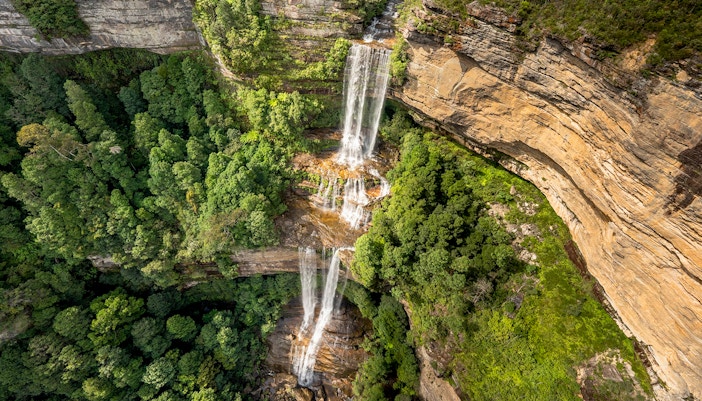
Katoomba: Best for first-time visitors
Katoomba is the heart of the Blue Mountains not just geographically, but in energy. It’s where you’ll find Echo Point, the Three Sisters, and the Scenic World rides. The streets are lined with vintage shops, indie bookstores, and classic Art Deco façades. There’s a long-standing creative community here, and the vibe swings between mountain-bohemian and low-key tourist hub.
How to get there: Direct train from Sydney Central to Katoomba Station (approx. 2 hours).
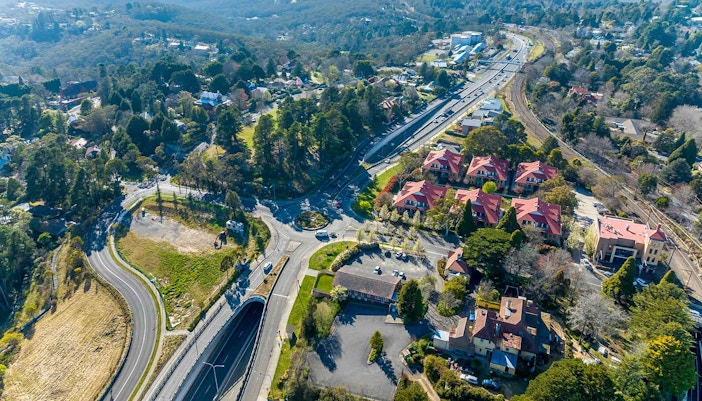
Leura: Best for gardens & boutique charm
Leura feels like a postcard: cherry blossoms in spring, heritage tea rooms, and immaculate private gardens. The main street has boutique shops, gourmet chocolate, and antique finds. A favourite among weekenders, it’s also a regular lunch/shopping stop on guided tours. Don’t miss the Leura Cascades walk, where small waterfalls and fern gullies line the track.
How to get there: Train to Leura Station, just one stop before Katoomba on the Blue Mountains Line.
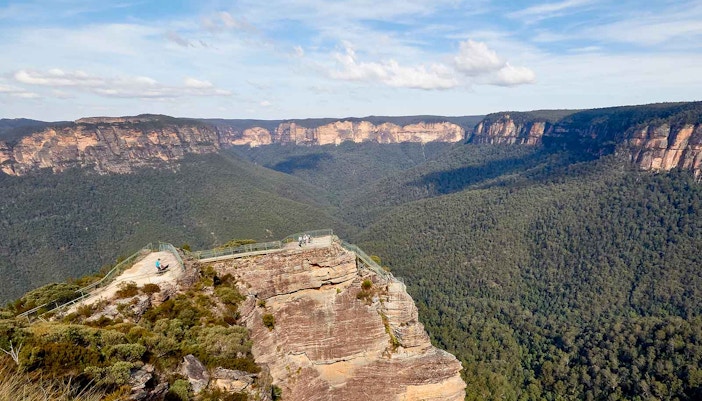
Blackheath: Best for bushwalkers & lookouts
Higher, cooler, and rugged. Known for dramatic lookouts like Govetts Leap and Evans Lookout, plus a strong rock-climbing and hiking scene. Local produce shines here. Try the Anonymous Café or seasonal dishes at Blackheath General Store.
How to get there: Train to Blackheath Station, about 10 minutes past Katoomba.
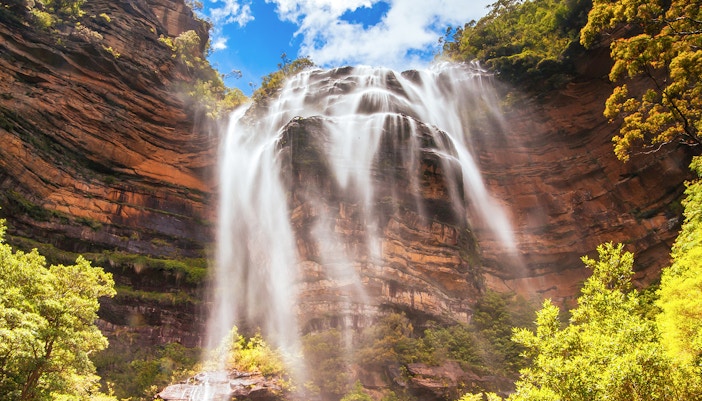
Wentworth Falls: Best for outdoor enthusiasts
Smaller and more residential, Wentworth Falls punches above its weight with natural beauty. The village is minutes from the waterfall itself, and trailheads like the National Pass and Wentworth Pass loop begin here. The Conservation Hut café is a classic post-hike pit stop. There's a tight-knit local community, and the mood is quiet, outdoorsy, and practical.
How to get there: Train to Wentworth Falls Station, roughly 1 hour 50 minutes from Sydney.
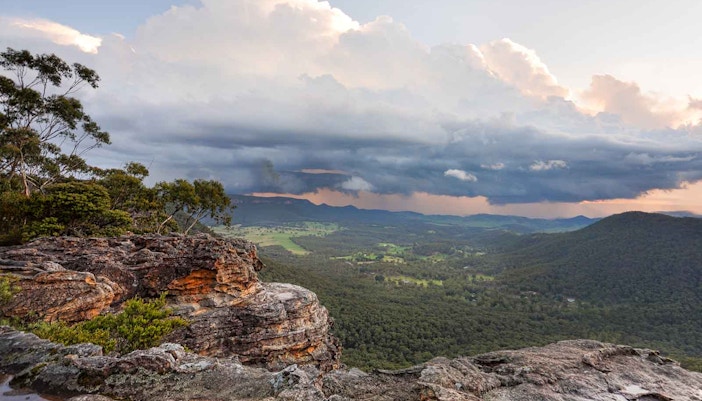
Mount Victoria: Best for heritage & western access
The last stop before the highway dips down to Lithgow, Mount Victoria feels older, quieter, and more heritage-heavy than the rest. It’s a good base for exploring less-visited hikes or heading west toward the Jenolan Caves. You’ll find a historic pub, a classic old cinema, and scenic drives in every direction.
How to get there: Train to Mount Victoria Station, end of the Blue Mountains Line.
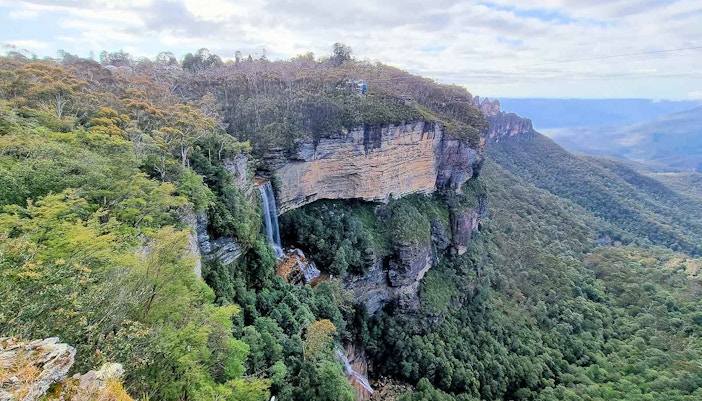
Medlow Bath: Best for high tea with a view
More a hamlet than a village, Medlow Bath is famous almost entirely because of the Hydro Majestic Hotel. It’s a dramatic clifftop hotel with sweeping views and a long, strange history. People come here for high tea and the view over Megalong Valley.
How to get there: Train to Medlow Bath Station, between Katoomba and Blackheath.
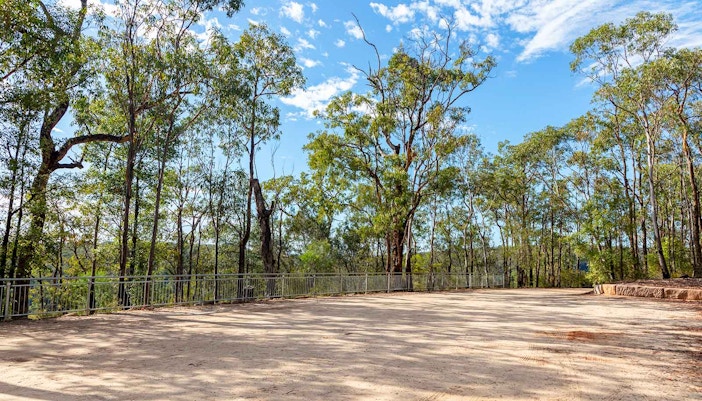
Glenbrook: Best for first stops & national park access
Glenbrook marks the gateway to the Blue Mountains and has a warm, almost foothill-town feel. Locals love its bakeries, bike paths, and Glenbrook National Park, which has creek swims and Aboriginal rock art. It’s a popular breakfast stop for early risers heading up the mountain road.
How to get there: Train from Sydney Central to Glenbrook Station (approx. 1 hour 10 minutes).
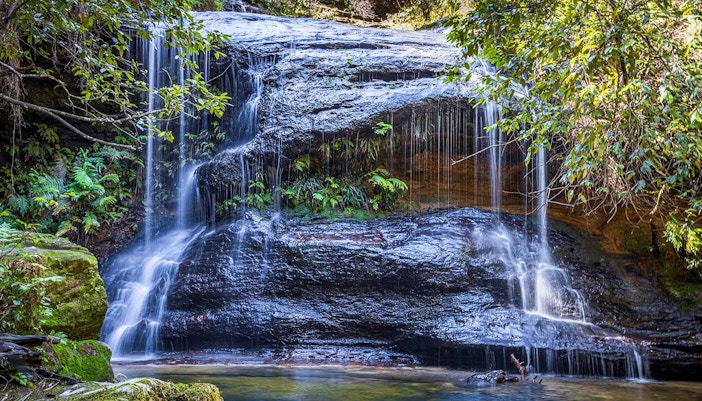
Lawson: Best for waterfall walks
Lawson often gets overlooked, but it’s worth a stop for its cluster of short walks. Adelina Falls, Cataract Falls, and Federal Falls can all be done in a few hours. The village itself is compact, with a couple of good cafés and a laid-back, local pace.
How to get there: Train to Lawson Station, about halfway between Glenbrook and Katoomba.
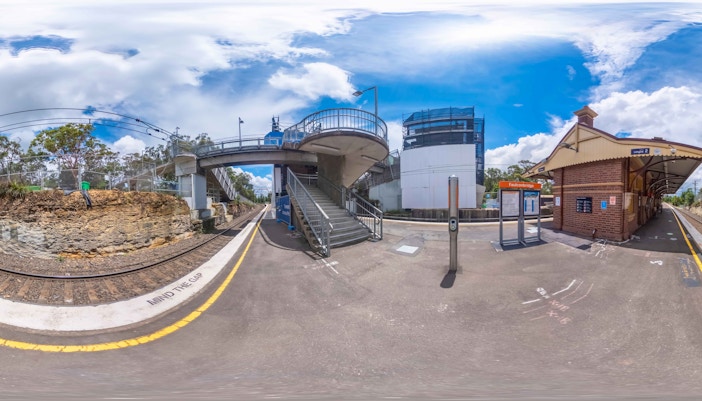
Faulconbridge: Best for art & history
Best known as the home of Sir Henry Parkes (often called the ‘Father of Federation’), Faulconbridge blends bushland with history. The Norman Lindsay Gallery is a standout, especially for art lovers. You’ll find good bushwalks here too, but they’re quieter and more local.
How to get there: Train to Faulconbridge Station, about 1 hour 15 minutes from Sydney.
Underrated Blue Mountains Villages
While Katoomba and Leura get most of the attention, a few lesser-known villages offer a quieter, more local experience. These villages are perfect for those wanting to step off the usual circuit.
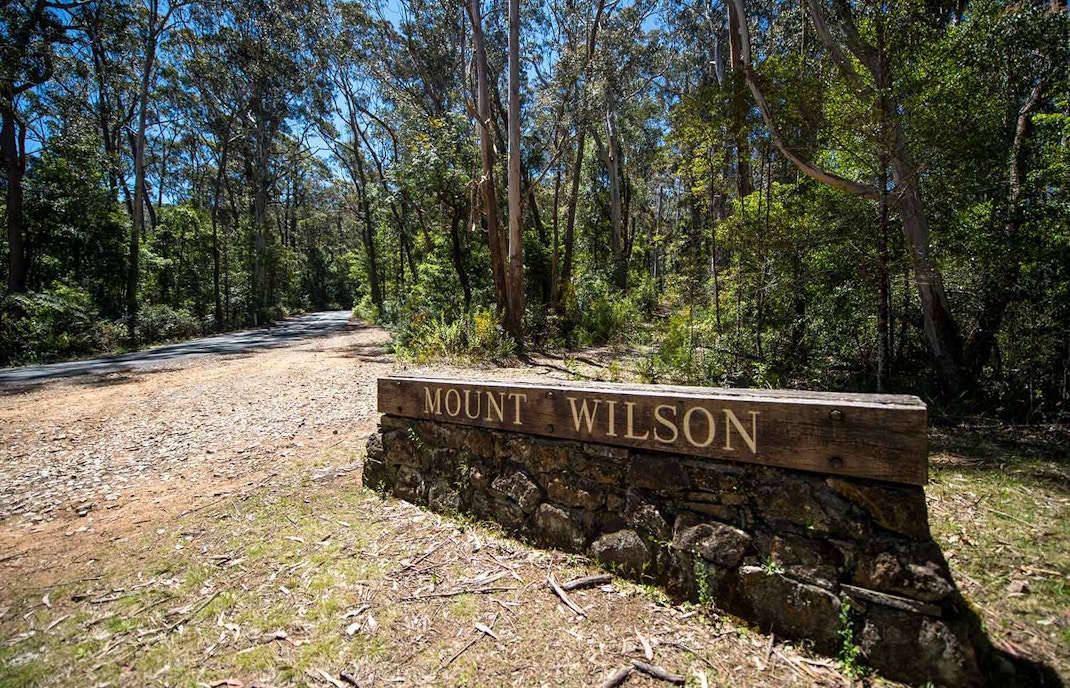
Mount Wilson: Best for autumn colors & gardens
Remote and uncrowded (best with a car). Famous for cool-climate gardens, tree-lined drives, and blazing autumn foliage. Expect private estates, historic homesteads, and trails like the Waterfall Circuit.
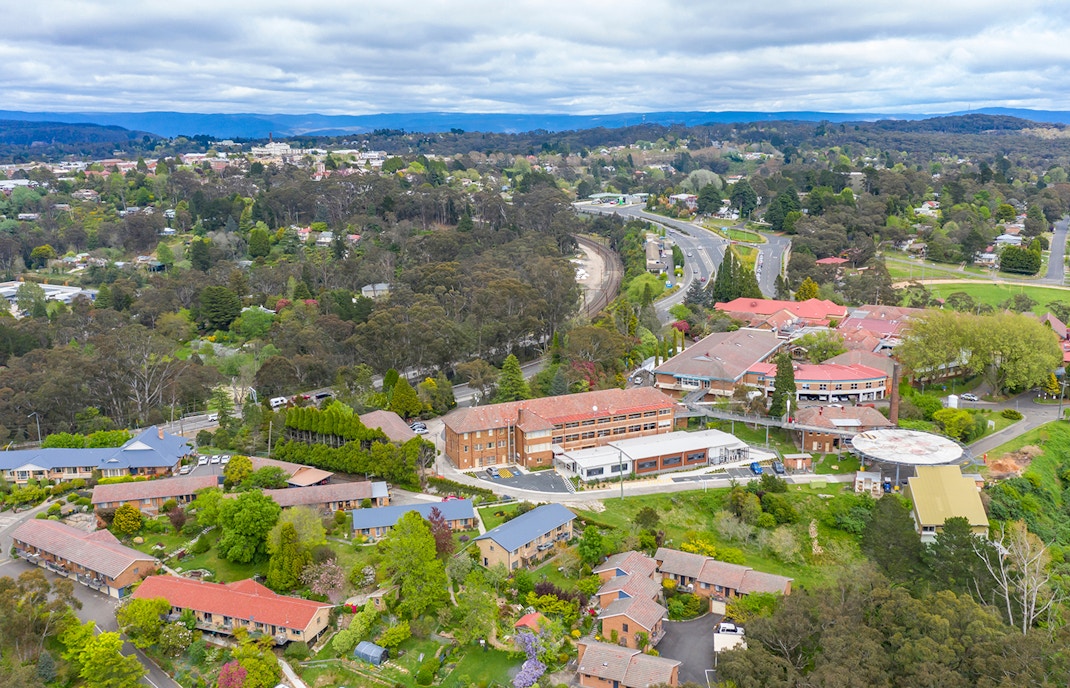
Bell: Best for off-grid walks
Tiny, with no real centre: just homes and sweeping forest views at the junction of Bells Line of Road. Ideal for off-grid hikes or as a stop en route to Lithgow or Zig Zag Railway.
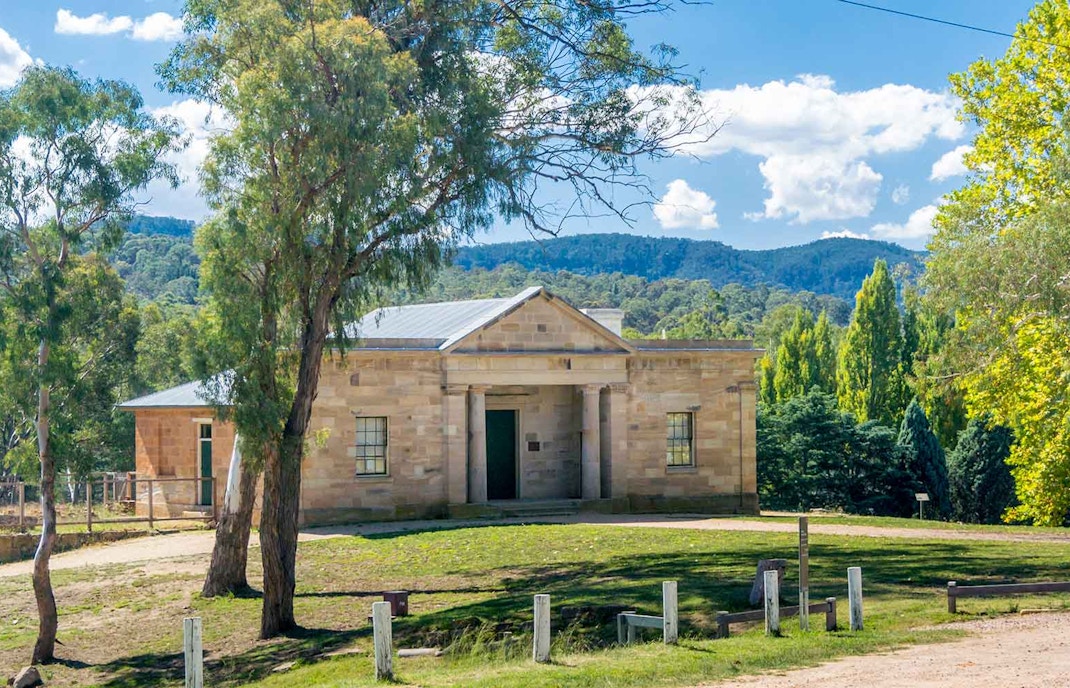
Little Hartley: Best for heritage & galleries
A historic sandstone village west of Mount Victoria. The Talisman Gallery showcases handmade metalwork, while surrounding landscapes blend rural charm with colonial history.
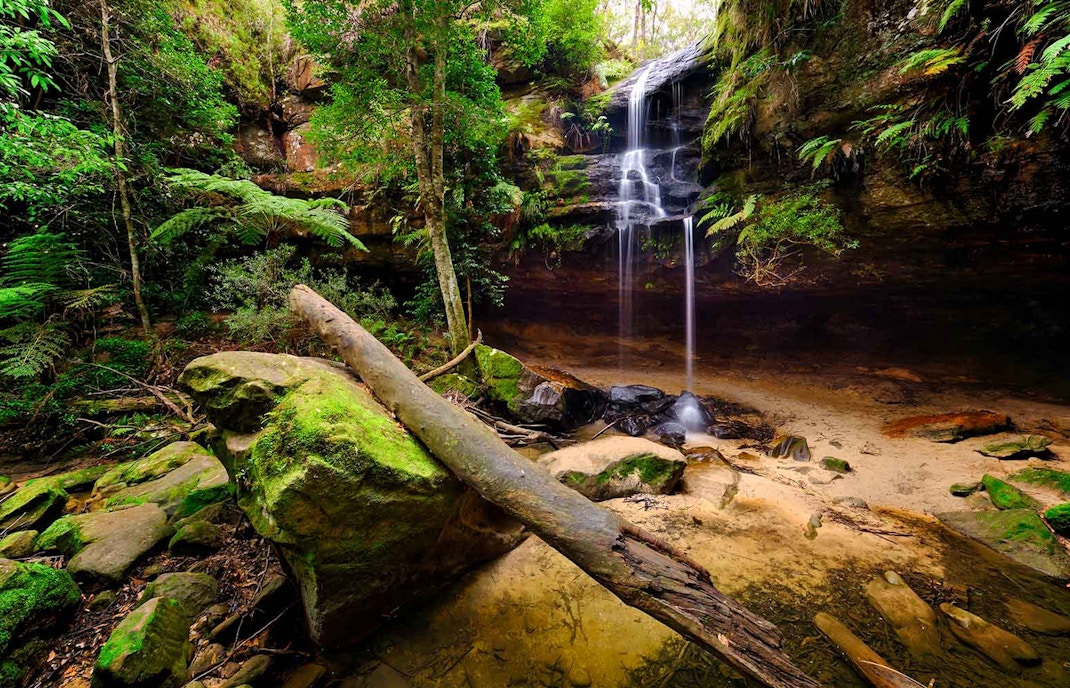
Hazelbrook: Best for quiet bushwalks
Less touristy than its neighbours. Known for Terrace Falls and Horseshoe Falls, plus a growing café scene. Great for travelers wanting a slower, local pace.
Frequently asked questions about Blue Mountain Villages
There are 27 officially recognised villages spread across the Blue Mountains region. You can see where each village sits by checking out our map guide.
If you’re travelling by train, Katoomba and Leura are your best bases. Both are on the main Blue Mountains Line. You'll have many cafes, galleries, and key attractions like Echo Point and Leura Cascades within walking distance from the center.
Yes, Mount Wilson, Bell, and Little Hartley are far less touristy. These spots are more spread out, often requiring a car, and appeal to visitors who prefer heritage sites, gardens, or remote bushwalking trails.
Autumn (March–May) is spectacular for gardens, cool air, and vivid foliage, while spring (September–November) offers wildflowers and festivals. Winter is cosy with log fires, and summer brings lush greenery and waterfalls.
Absolutely. Many villages are only 5–10 minutes apart by train or car, so you can hop between several. A popular route is Glenbrook → Wentworth Falls → Leura → Katoomba → Blackheath in a single day, if you plan well.
Blackheath is known for its cafes and farm-fresh produce, Bilpin for orchards and cider, and Katoomba for a mix of restaurants. Smaller villages like Lawson and Faulconbridge also have great hidden cafés.
Yes. The Hydro Majestic at Medlow Bath, Norman Lindsay Gallery in Faulconbridge, heritage sandstone buildings in Little Hartley, and the old-world movie theatre in Mount Victoria are highlights for culture and history lovers.



